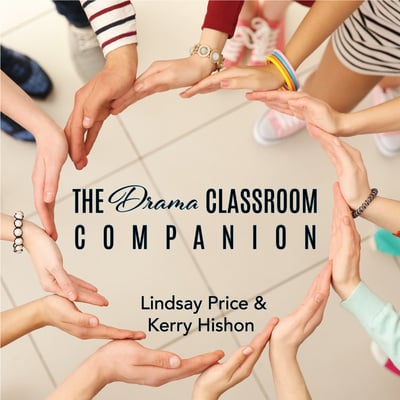Keeping Up Morale (or, Dealing With “Rehearsal Blahs”)
There comes a point in every rehearsal process when the dreaded “rehearsal blahs” start to set in. This tends to be mid-way through the rehearsal process, when the initial excitement of casting and read-throughs has become a thing of the past, off-book day has just happened (and the resulting stumble-through of the show was not pretty), and opening night seems like it’ll never come. This is the time of endless refrains of “do it one more time” and lectures about “if you don’t practice at home, it won’t be as good as it could be.”
What’s a director to do?
Next time you’re feeling the rehearsal blahs sneaking up on your cast, try this exercise called “Warm Fuzzies.” Many of my director friends use this in rehearsals and it never fails to brighten up a student’s day! The exercise is called “Warm Fuzzies” because it’s meant to make students “warm and fuzzy” inside upon receipt. The purpose of the exercise is for students to observe other students contributing positively to the rehearsal process and compliment them anonymously on it. This helps students to shake off the rehearsal blahs by refocusing their energy (giving them a small, different concept to think about other than the show itself and stressors that go with it) and giving them opportunities to both demonstrate good rehearsal behaviour and to catch others doing the same.
At your next rehearsal, have a jar or small box available with small slips of paper and some pencils beside it. This is the Warm Fuzzies container. Bonus points if the container is decorated!
During your rehearsal (when students are not onstage rehearsing or otherwise engaged), encourage students to quietly observe the actions and performances of their peers. During break time or when they are not working, students will write a positive note or a complement to another classmate on a slip of paper and put it in the Warm Fuzzies container. Students should not write their own names on the slip–the point is for the notes to be anonymous. Warm Fuzzies can be great for onstage performances or positive contributions to the class. Examples of Warm Fuzzies might include:
- Devon always arrives early and helps to set up the rehearsal space.
- Jenny did a great job projecting her lines. They were really clear and easy to understand, even when I was sitting at the back of the audience.
- When he wasn’t onstage, Mark helped other students with their lines.
- Sam was quiet and focused backstage.
- Jeremy helped another student review choreography that they missed.
- Mika’s accent was so funny; it made her really stand out onstage.
And so on! At the end of class, take five minutes to select some Warm Fuzzy notes and read them aloud to the group. This exercise can be repeated at as many or few rehearsals as you wish. The Warm Fuzzies exercise can also be useful in the drama classroom to complement positive class contributions and skill improvement.
Optionally, you may wish to collect all the Warm Fuzzy notes and give them to students on closing night or at the final class, as a souvenir of the process.
Note: It’s important to keep track of the number of Warm Fuzzies that are given/announced out loud to the same people over and over, to ensure that students aren’t feeling left out. If you have a student acting as Assistant Director or Stage Manager, you might encourage them to keep an eye out for opportunities to create Warm Fuzzies for those people who may not have received one yet. Teachers and directors are encouraged to write Warm Fuzzies as well!
During the rehearsal process, once a student has received at least one Warm Fuzzy note, they will complete a written reflection, to be submitted to the teacher.
Related Articles
The Drama Classroom Companion
by Lindsay Price & Kerry Hishon
The Drama Classroom Companion is filled with articles and exercises to build the skills needed for theatrical performance as well as real world skills like creative thinking, critical thinking, collaboration, and communication.
The Rehearsal Companion
by Kerry Hishon
You’ve chosen the play, paid the royalties, done the script analysis, held your auditions, and cast the show. Tomorrow is the first rehearsal. Are you ready? Really ready? The Rehearsal Companion can help!





